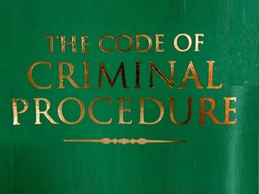New York Court of Appeals
Decided May 14, 2015
2015 NY Slip Op 04163
Drug Law Reform And Article 440 Motions
Issue: whether the 2011 amendments to CPL 440.46 expanded the class of defendants eligible for resentencing under the Drug Law Reform Act to include those who are on parole at the time resentencing is sought.
 Holding: the amendments to the Drug Law Reform Act did expand eligibility to parolees and non-incarcerated parolees are considered to be in legal custody for purposes of re-sentencing.
Holding: the amendments to the Drug Law Reform Act did expand eligibility to parolees and non-incarcerated parolees are considered to be in legal custody for purposes of re-sentencing.
Summary: defendant sold cocaine to an undercover police officer in Queens, New York and pleaded guilty to once count of third degree criminal sale of a controlled substance, a class B felony. He was sentenced to six to twelve years to be followed by three years of post release supervision. While on parole he moved for resentencing under CPL 440.46. Defendant contended he was eligible for re-sentencing under the 2011 amendments to section 440.46. The trial court granted the re-sentencing application and the Appellate Division affirmed. The People appealed and the New York Court of Appeals affirmed the Appellate Division.
 Legal Analysis: The Court of Appeals analysis focused on the statutory interpretation of the word custody and whether someone on parole is considered to be in the custody of the Department of Corrections. The Court concluded that a non-incarcerated parolee is within the legal custody of the Department of Corrections.
Legal Analysis: The Court of Appeals analysis focused on the statutory interpretation of the word custody and whether someone on parole is considered to be in the custody of the Department of Corrections. The Court concluded that a non-incarcerated parolee is within the legal custody of the Department of Corrections.
The governing rule of statutory construction is that courts are obligated to interpret a statute to effectuate the intent of the Legislature, and when the statutory language is clear and unambiguous, it should be construed so as to give effect to the plain meaning of the words used” People v Williams, 19 NY3d 100, 103 [2012], quoting?People v Finnegan, 85 NY2d 53, 58 [1995]). The language of CPL 440.46 (1) encompasses “any person in the custody of [DOCCS]” (emphasis added). A non-incarcerated parolee is within the “legal custody” (Executive Law 259-i [2][b]) of DOCCS. Thus, the plain meaning of CPL 440.46 (1) leads to the conclusion that a non-incarcerated parolee is eligible to apply for resentencing under the statute.
Executive Law 259-i (2)(b), for example, states that a parolee shall be in the “legal custody” of DOCCS until, among other possibilities, “return to imprisonment in the custody of the department” (see also?Correction Law 275 [using both “legal custody” and “custody” in reference to a person who has been granted conditional release]; CPL 410.50 (1) [“Custody. A person who is under a sentence of probation is in the legal custody of the court that imposed it pending expiration or termination of the period of the sentence”]).

